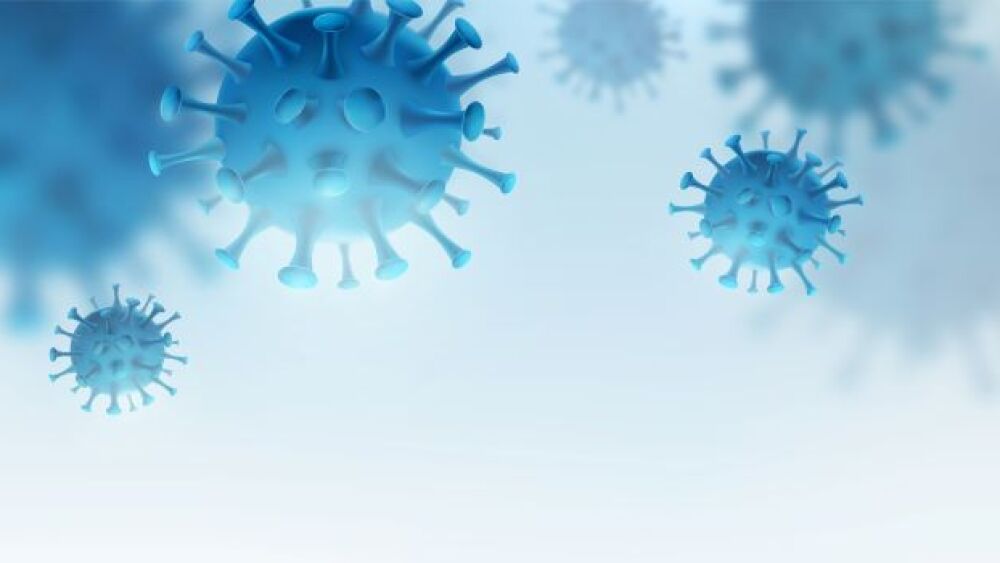Importantly, the researchers recovered virus that they were able to culture, indicating a high risk for transmissibility.
With all the misinformation circling the web about a coronavirus that just happens to be novel, it makes sense to be more than a little bit confused about the need for vaccination after a COVID-19 infection.
The following research might help provide some clarity about the topic.
A Brazilian study published in March looked at 33 individuals - 30 healthcare workers – with recurrent COVID-19 infections, an unfortunate job hazard for these heroes fighting to save lives in one of the world’s hardest hit countries. The second infection “tended to be of enhanced severity” and one person died.
The authors concluded that the recurrence was associated with being a female health care worker in possession of blood type A and having significantly reduced Immunoglobulin G (IgG) antibodies after the first episode.
Study co-author, Professor Daniel Altmann of the Department of Immunology and Inflammation at Imperial College in London said that the study “provides some evidence to suggest that people who produce a weak antibody response against SARS-CoV-2, may be more likely to be infected again by the virus in future.”
Closer to home, an observational study of more than 3,000 healthy members of the US Marines Corps between the ages of 18-20 demonstrated that a prior COVID-19 infection was no surefire defense against reinfection. More so, new variants such as B.1.1.7 and B.1.617, thought to be more transmissible, were not the predominantly discovered strain.
“These reinfections represent the prevailing virus types at the time and don’t represent the more recent variants of concern that are considered to be more infectious and that are less protected by previous infection,” said Dr. Stuart C. Sealfon, a professor at Icahn School of Medicine at Mount Sinai and the study’s senior author.
“The reinfection rate in young people is high, even with the previous circulating strains, and we expect it’s going to be much higher even than we saw in this study.”
Importantly, the researchers recovered virus that they were able to culture, indicating a high risk for transmissibility.
“The bottom line is that previous infection is not a Get Out of Jail Free card for COVID infection. Young, healthy people run a risk of reinfection and possibly being typically asymptomatic or incredibly mildly symptomatic, not realizing it, and passing it on to others who might be more vulnerable. Even with many vulnerable people getting vaccinated, not all of them generate effective immune responses,” Sealfon told BioSpace.
What these studies show is that the chance of reinfection without the vaccine is highly variable, and that it is not only the elderly and otherwise vulnerable whose natural immune responses may not be up to the task of fending off the virus. In the case of the reinfected marines, the amount and quality of antibodies generated was directly tied to the risk of a secondary infection.
“Natural infections can leave you with a range of immunity” while vaccines consistently induce high levels of antibodies, said E. John Wherry, Director of the Institute for Immunology at the University of Pennsylvania, who was not involved in the study.
On the flip side, the U.S. Centers for Disease Control and Prevention (CDC) put out a new report in May showing that just 0.01% of vaccinated Americans experienced breakthrough infections between January 1 and April 30. Per the CDC, approximately 101 million people were fully immunized at the end of April, with only 10 662 reported breakthrough cases.
Of these 10, 662 reported cases, only 2% led to fatal outcomes, a strong indication that the approved vaccines also limit the severity of the illness.
The CDC, which recommends that recovered COVID-19 patients get vaccinated, also points to the potential waning of immune protection, stating: “Current evidence suggests that reinfection with the virus that causes COVID-19 is uncommon in the months after initial infection, but may increase with time.”
While vaccination is not a sure thing, it far outshines natural immunity as a defense mechanism, Sealfon said.
“The vaccines are much more effective against subsequent infection, and they are much more effective against these new variants. Some people have gotten very sick on the second infection. People have died with a second infection.”
Moreover, getting vaccinated following a COVID-19 infection appears to serve as a very effective immune primer.
A study of 51 U.K. health care workers, approximately half of whom had a previous laboratory-confirmed SARS-CoV-2 infection, demonstrated that a single dose of the Pfizer/BioNTech vaccine led to a much higher immune response than the first dose in those without a prior infection.
Ultimately, the immunity conveyed was at least an order of magnitude greater than that offered by the two-dose regimen in someone without a prior incidence of COVID-19.
“We’re starting to get this under control, and we don’t know what’s going to happen when the fall comes around. This has the possibility of people moving more indoors and it flaring up again,” Sealfon said. “If we can all get together and get vaccinated, we will suppress this and get on to normal lives.”






